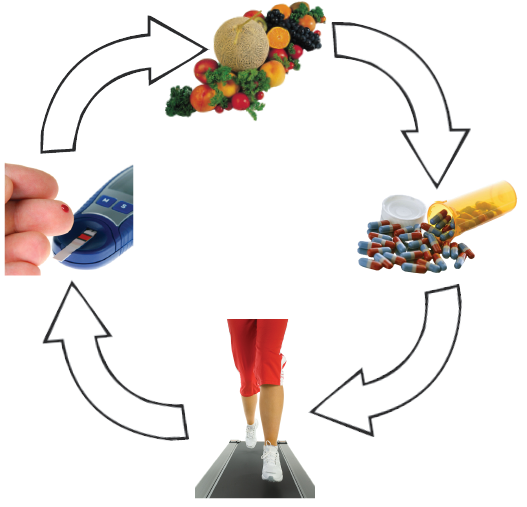What You Should Know About Diabetes
In 2014, 11.9 percent of Mississippians reported a doctor told them they had diabetes.
Diabetes interferes with the body’s use of food for fuel. When you eat, your body converts food into a substance called glucose, which travels in the blood to the body’s cells. Insulin, a hormone produced in the pancreas, acts like a key to open the cells and let the glucose inside. In a person with diabetes, either the pancreas does not make insulin (type 1 diabetes), or the body cannot efficiently use the insulin that is made (type 2 diabetes).
More than 90 percent of people with diabetes have type 2, which can occur in children as well as adults. Other types of diabetes include those related to pregnancy, surgery, medications, and other illnesses. While the types of diabetes differ, all may cause the same long-term health problems associated with diabetes, such as heart, kidney, eye, and nerve diseases.
Causes and Symptoms
Excess weight, family history of the disease, and getting older increase a person’s chances of developing diabetes.
Symptoms of diabetes may be so slight that a person does not notice them. Symptoms may include fatigue and a feeling of illness, great thirst, frequent urination, sudden weight loss, blurred vision, and slow healing of infections.
Doctors diagnose diabetes by looking at the following evidence:
- Excess weight and the presence of diabetes in the family.
- Symptoms of diabetes such as thirst and fatigue.
- Complications of the disease (e.g., heart trouble).
- Fasting blood glucose (often called sugar) readings over 126mg/dL and/or presence of ketones (proteins) in the urine.
Impaired fasting glucose is a new diagnostic category in which people have blood glucose values greater than normal but less than the diagnosis level for diabetes. Impaired fasting glucose may be a sign of higher risk for developing diabetes.
Treatment
There is no known cure for diabetes, but lifelong treatment can help control the disease. Treatment also reduces the likelihood of long-term problems from this disease and increases the chances for a long, healthy life.

There are four essential elements of diabetes control:
- a prescribed meal plan
- regular physical activity
- medications
- monitoring blood glucose (sugar)
Daily patterns of food, activity, and medications must be balanced for blood glucose control.
A qualified healthcare professional can teach you how and when to take medications, and how to balance food, exercise, and medications.
Diabetes Self-Care

People with diabetes should know their meal plan. A meal plan is a guide for what, when, and how much to eat at each meal or snack. The following tools are used to design meal plans and choose appropriate foods for managing diabetes:
- The Plate Method (also called “Create Your Plate”)
- The Exchange Lists for Meal Planning
- Carbohydrate Counting
- MyFoodAdvisor (available from diabetes.org)
People with diabetes also need to know:
- how to check blood glucose and urine ketones
- what to do if blood glucose levels are too high or too low
- warning signs that blood glucose is dangerously high or low
- what to do during sickness
- when to call the doctor
- how to take their medicine
Wearing diabetes jewelry can help ensure that friends or strangers will not ignore symptoms that signal a medical emergency.
Good care is a day-to-day responsibility. It is beneficial to overall health and includes these routines and exams:
- Daily foot baths, inspection, and dry socks
- Regular toenail trim by a healthcare provider
- Annual eye exam
- Blood glucose monitoring
- Regular A1c and kidney function tests
Additional information about diabetes is available from your county Extension office or the American Diabetes Association, Mississippi Affiliate.
Reference
Centers for Disease Control and Prevention. (2016). Diagnosed diabetes.
Information Sheet 1632 (POD-05-24)
Revised by Qula Madkin, Extension Instructor, Food Science, Nutrition, and Health Promotion, from a previous revision by David Buys, PhD, MSPH, CPH, Associate Professor, and Victorian Tilley, former Graduate Research Assistant, Food Science, Nutrition, and Health Promotion.
The Mississippi State University Extension Service is working to ensure all web content is accessible to all users. If you need assistance accessing any of our content, please email the webteam or call 662-325-2262.


